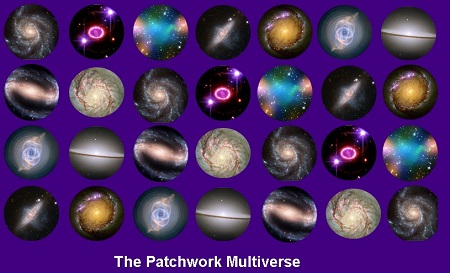The god of this age has blinded the minds of unbelievers, so that they cannot see the light of the gospel of the glory of Christ, who is the image of God.
2 Cor 4.2
Non-believers will likely consider the above scripture irrelevant and unpersuasive and will ponder the wisdom of starting an article on the multiverse with a verse of scripture. In so doing they will have confirmed the scripture (blind to spiritual truths) while setting up my two points: First – this is not merely a discussion of physics – but of metaphysics. (Metaphysics being those things that lie beyond the realm of observable physical reality and so strictly speaking, are beyond the realm of the questions that physics can answer.) Second, not only is the multiverse “pure metaphysics”[1] as Christian apologist William Lane Craig puts it, but many scientists seem blind to the fact that they are engaging in metaphysics – not physics – when proposing the multiverse as a “scientific” answer to a number of the problems their theories have. They have fallen into the same error that philosopher of science and apologist John Lennox chides theoretical physicist Stephen Hawking for: engaging in metaphysics while failing to recognize he is doing so.[2]
Truth in advertising
Having identified multiverse theories as claims that deal with the metaphysical, we can make the following observations: Continue Reading




.jpg)
 Though they’ll never admit it, most evolutionists adhere to evolution as followers in any other religion adhere to their faith.
Though they’ll never admit it, most evolutionists adhere to evolution as followers in any other religion adhere to their faith.
